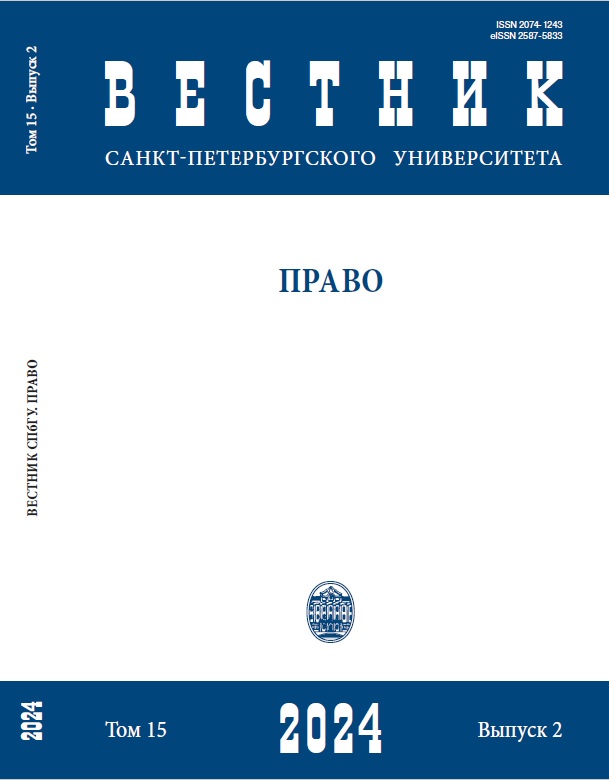Legal content of fraud in the field of consumer lending. Part one
DOI:
https://doi.org/10.21638/spbu14.2024.202Abstract
The article shows the scale of development in recent years of the practice of fraud in the field of consumer lending using the latest information technologies and methods of psychological influence on crime victims as a threat to the stability of financial markets. The dynamics of modern crime schemes in the field of consumer lending, aimed at using misleading citizens
as an instrument to steal funds from banks, are examined. The practice of preliminary investigation that has developed in recent years in Russia, as well as judicial practice on the
qualification of fraud in this area, is characterized. It is shown that the widespread unjustified recognition as victims in cases of fraud in the field of lending only of misled citizens who
become instruments of theft of bank funds violates their constitutional rights and at the same time is a significant factor in the catastrophic development of this type of criminal activity. The economic basis of the position of banks is revealed, actively insisting on recognizing citizens who have suffered from fraud as borrowers who have consciously entered into a loan agreement, which consists of ensuring the opportunity to shift corporate risks of losses from
material damage caused to banks by fraudsters to the injured citizens. Based on the conceptual foundations of criminal law and the provisions of the current criminal legislation, a rationale is proposed for recognizing two groups of persons as victims as a result of fraud in the field of consumer lending: banks — as bearing material damage from the theft of funds from them and citizens — as suffering moral damage, becoming instrument for committing a crime. The role of citizens deceived by scammers as an instrument for stealing funds from banks, which
determines the flaw of their will, is determined and revealed.
Keywords:
fraud, credit, victim, property damage, moral damage, law, constitution, legality, corporation, court, unity of court, instrument of crime, financial market, bank., fraud, credit, property damage, moral damage, constitution, bank, unity of court
Downloads
References
Malina, Maksim A. 2023. “Ways of constitutionalization of Russian justice”. Gosudarstvo i pravo 3: 19–26. (In Russian)
Downloads
Published
How to Cite
Issue
Section
License
Articles of "Vestnik of Saint Petersburg University. Law" are open access distributed under the terms of the License Agreement with Saint Petersburg State University, which permits to the authors unrestricted distribution and self-archiving free of charge.






